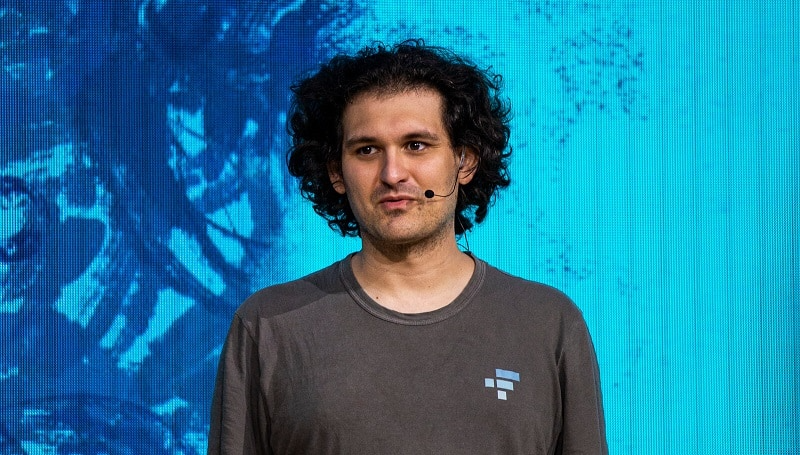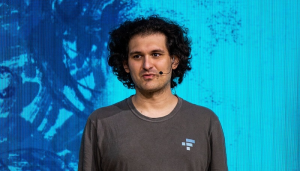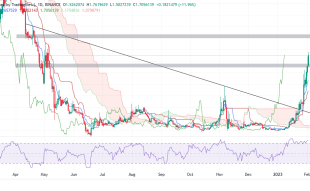Join Our Telegram channel to stay up to date on breaking news coverage
U.S. District Judge Lewis Kaplan ruled on Wednesday that Sam Bankman-Fried is no longer permitted to speak with FTX and Alameda workers or use encrypted communications.
The limitation was put in place as a result of Friday’s allegations that the disgraced crypto tycoon had contacted a possible witness earlier this month via the encrypted messaging service Signal in an effort to build a better rapport.
Judge Kaplan found it was “clearly and convincingly sufficient” to impose the restrictions until a further determination could be made, according to a recent filing. The court plans to let both legal teams present arguments for or against the measure, which was initially proposed as a bail modification, on Feb. 7.
When Bankman-Fried contacted “the current General Counsel of FTX US,” a person with intimate knowledge of his actions leading up to the collapse of FTX in November of last year but listed in a recent filing only as “Witness-1,” federal prosecutors claimed that this may have amounted to “witness tampering.”
U.S. prosecutors claimed Bankman-Fried wrote,
I would really want to reconnect and see if there is a way for us to have a productive connection, use each other as resources when possible, or at least vet things with each other.
Bankman-Fried’s FTX, which he founded, declared bankruptcy in November as a result of a run on the platform brought on by a sharp decline in the value of FTT, the exchange’s native cryptocurrency. As a result of the run on FTX, it was obliged to file for bankruptcy since it could not recognize withdrawals and did not maintain one-to-one reserves of customer assets.
After being detained, Bankman-Fried was charged with eight financial offenses in relation to the collapse of the exchange. He entered a not guilty plea to the accusations on January 3, and a trial is now set for October. He is accused of stealing billions of dollars from his clients’ money to fund trades at his trading company Alameda Research, give to political causes, and buy private property.
Regarding the accusations of witness tampering, Bankman-Fried did not dispute that he had contact with an FTX worker, but his legal team maintained that the former CEO did nothing wrong by making what they called “a purely innocent attempt to offer aid in FTX’s bankruptcy procedure.”
But in a court ruling, Judge Kaplan stated that “it appears to have been an effort to have both the defendant and Witness-1 sing out of the same hymn book,” indicating that he did not view Bankman-Fried’s recent activities in a “benign fashion.”
Prosecutors claimed that a Signal attempt to contact “Wittness-1” was made on January 15 and was accompanied with an email. Ryne Miller is FTX US’s current attorney, however his name has not been released. The attorney for the FTX founder did not dispute the fact that “[Bankman-Fried] has contacted additional current and former FTX employees after his release.”
SBF to 'Witness 1' pic.twitter.com/A0jTsAVFn2
— db (@tier10k) January 30, 2023
Federal prosecutors used Bankman-statement Fried’s to former Alameda CEO Caroline Ellison as justification for limiting his use of encrypted or “ephemeral” communications, including messages and phone calls. They said that Bankman-Fried acknowledged “that many legal cases hinge on documentation.”
One of the recently implemented restrictions specifically states that Bankman-Fried is not permitted to speak with current or former FTX or Alameda employees without a lawyer present unless authorized by the government; however, this restriction does not apply to immediate family members, such as Bankman-father, Fried’s who was a paid employee of FTX.
The legal team for the creator of FTX sought Judge Kaplan to undo a previous modification to the agreement that allowed Bankman-Fried to stay at his parents’ house in Palo Alto, California, while he awaited his criminal trial when they opposed the bail adjustment proposed by federal prosecutors.
On the day of his arraignment, when he pled not guilty to a slew of financial offenses including federal wire fraud, securities fraud, and money laundering, a change was made that prevented Bankman-Fried from accessing monies or digital assets owned by FTX and Alameda.
Furthermore, Bankman-Fried’s attorney criticized the new bail modification as “overbroad” and “unworkable,” claiming it would prevent the creator of FTX from speaking with his therapist without a lawyer present, for instance.
Related
- SBF Is Trying To Pull The Strings From Behind Bars
- SBF accused of “Gaslighting and Manipulation” by the former president of FTX US
- Bankman-Fried enters a not guilty plea
Join Our Telegram channel to stay up to date on breaking news coverage


